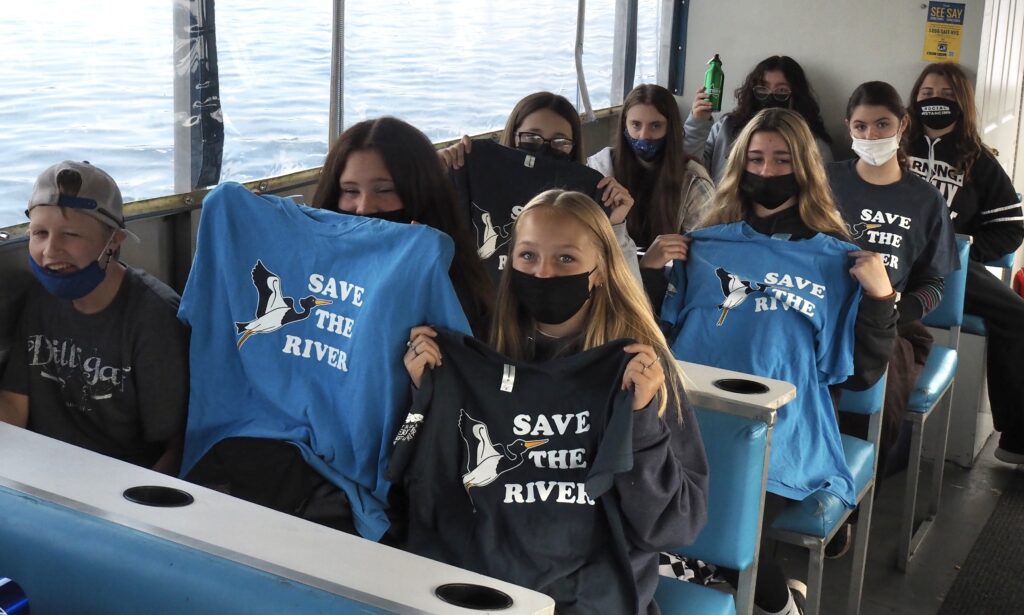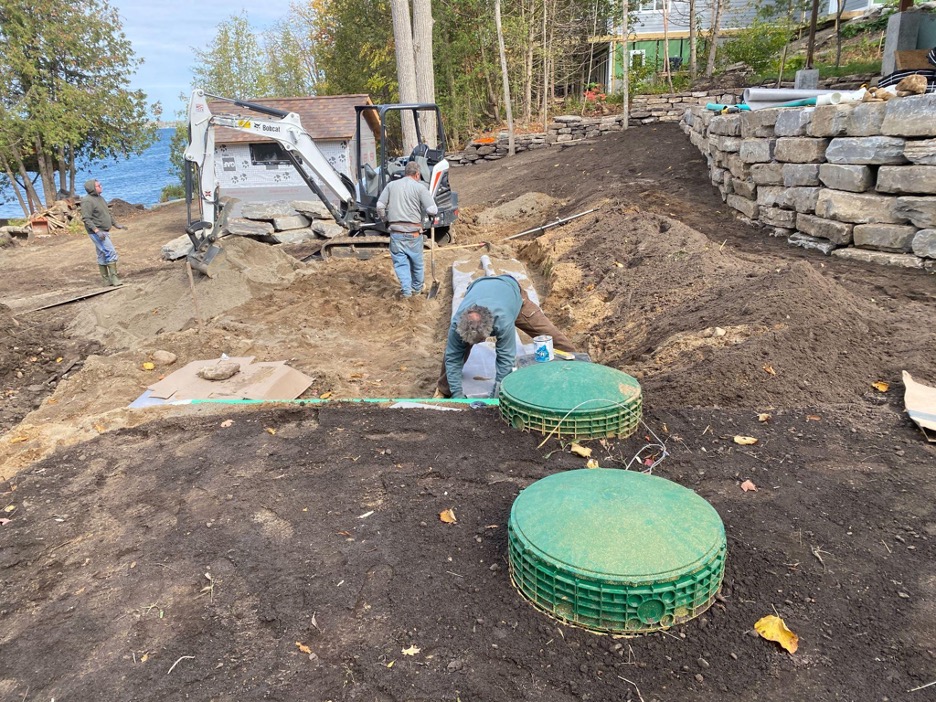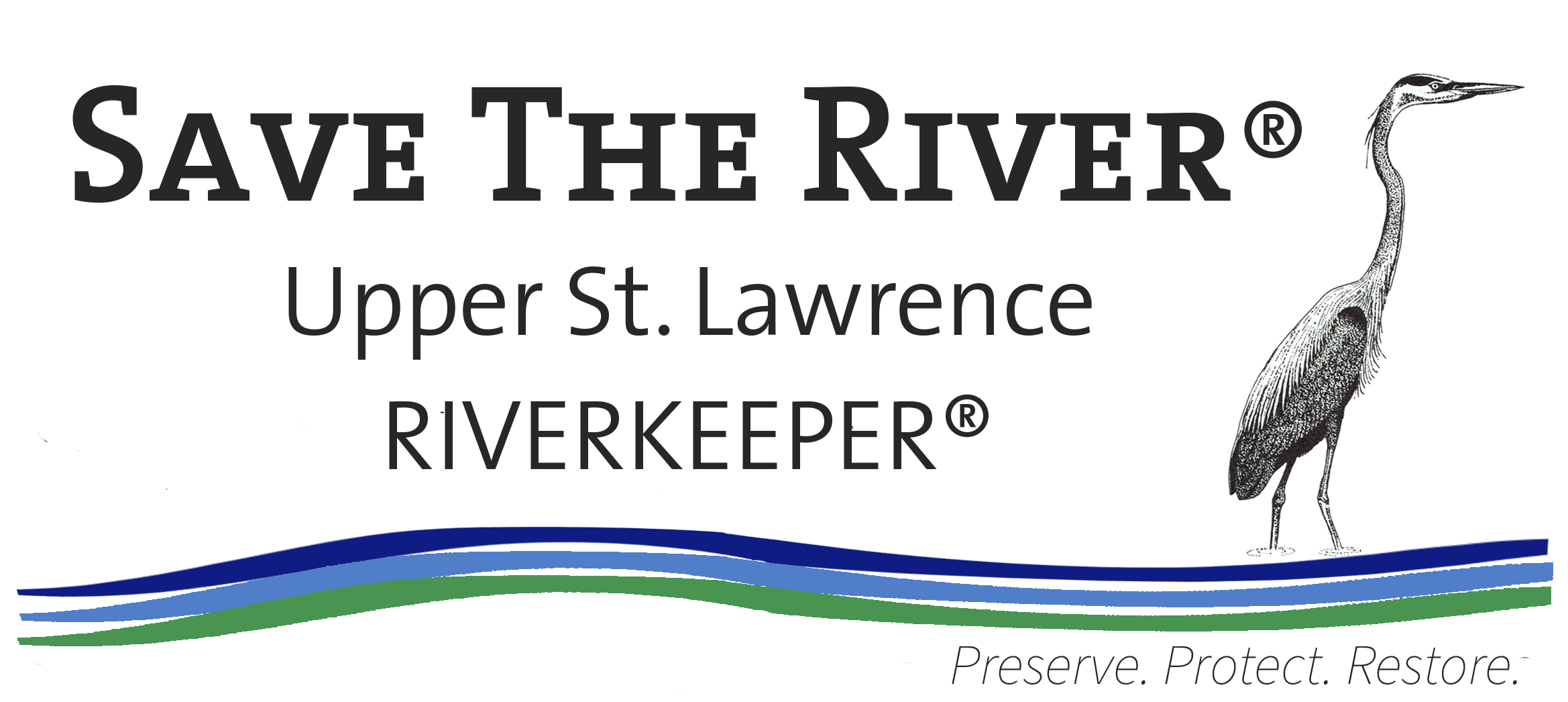Published on April 6, 2022 in the Thousand Islands Sun Progress Edition
Save The River Upper St. Lawrence RiverkeeperⓇ (STR) enters our 44th spring and summer season with optimistic plans for Trash Free River cleanups and continuing enhancements for our reimagined In the Schools and On the Water education programs. A new digital online Sewage Handbook is available this year guiding interested readers in the methods of updating their septic systems using current standards. After successfully completing Save The River’s 33nd annual Winter Environmental Conference in a zoom format, planning was ramped up for the three primary areas of STR’s mission: restore, preserve, and protect the Upper St. Lawrence River now and for generations to come through advocacy, education, research and stewardship.
This summer we are excited to expand our Trash Free River program along the St. Lawrence River. We are hosting River Days on July 29th and 30th, this is an international effort to cover as much shoreline as possible with teams scattered across the River. We are working jointly with the Thousand Islands Association (TIA) as they coordinate teams on the Canadian side. Save The River will be coordinating cleanups at various locations between Cape Vincent and Massena. Following the shoreline cleanups we will be hosting a Volunteer Appreciation event at Northern Flow Vineyards/Deluke’s Garden Center on Saturday July 30th from 5pm-8pm. This family friendly event will feature dinner, live music, local craft beverages and more!
In addition to our shoreline cleanups Save The River has added Household Hazardous Waste Collections to help remove outdated and potentially dangerous products from homes and cottages. Collection days are currently held semi-annually by Jefferson and St. Lawrence counties. More information will be available once these dates are announced.
Trash Free River cleanups
Save The River has been cleaning up shoreline and boat slips for several years on both sides of the upper St. Lawrence River in an ongoing effort to keep the River “swimmable, fishable, and drinkable now and for generations to come.” These community-based and volunteer-oriented cleanups are focused 10 feet inland of the shoreline and out into the River. They are made possible thanks to grants from the Leonard C. & Mildred F. Ferguson Foundation and New York sat
The problems of trash in the water of the St. Lawrence River have been well documented and can be observed on a daily basis by islanders and boaters. Removing plastics and other man-made debris from the St. Lawrence River is a pressing concern. Our Trash Free River cleanups of shoreline and River bottom are removing a major source of pollution from The River. Plastic pollution is a continuously growing topic of concern as it serves as a habitat and ecosystem disrupter. Plastic can block food and water sources, be ingested by fish, bird and other species and breakdown into microplastics.
Since September 2020, Save The River has hosted 9 successful Trash Free River cleanups in the 1000 Islands and the surrounding shoreline. In 2021 750 lbs of trash(in bags), 30 tires and many pieces of large construction debris including lumber and scrap metal was collected by 143 volunteers and 7 staff members.

Education Update

Save the River’s education programs have been adapting as the pandemic conditions change. When we are able, our educators are out In the Schools, having conversations with young stewards and teaching them about the St. Lawrence River Environment. In the very best circumstances, we get out in boats On the Water with classes. When restrictions tighten, we move to our online platforms, and reach out through Zoom and social media. In 2021 our in-person programs educated over 1,000 students, and online we reached about 3,000.
STR and Alexandria Bay Central School partnered together to teach Emily Dorr’s Living Environment class about freshwater mussels. Students had hands-on opportunities to collect data on invasive and native mussel species, participated in a Zoom call with NYS Museum Malacologist Dr. Denise Mayer, and went on a river tour to see first-hand the habitats where mussels live.

STR’s Education Intern Chelsea Broughton started a light-hearted educational series on our social media platforms called “Fun Fact Friday,” where followers could learn quick facts about the River and Great Lakes ecosystems. Presented as a “Season,” we’re looking forward to returning to Fun Facts next winter. For the summer season, our educators are gearing up an adventure series, where viewers can follow along as we monitor tern colonies, explore shorelines, and participate in trash clean-ups. Stay tuned!
Each of our online K-12 programs has an educator guide, start activity, vocabulary list, and additional activities, and the lessons are aligned with New York State standards. The lessons and education tools can be found here.
Are you an educator? Are your students curious about the St. Lawrence River?
Are you interested in becoming a Riverkeeper and helping us protect the River?
Reach out to us at info@savetheriver.org.
Save The River’s Septic System Handbook
Save The River has a new, updated Septic System Handbook. Save the River worked with Eric Murdock, P.Eng. of OnSite Engineering, PLLC. OnSite Engineering specializes in innovative design techniques for installing septic systems at challenging sites that do not have the space, soil type or soil depth traditionally needed to install a more traditional septic system. Island or shoreline properties often need these innovative septic system designs. These systems use in-tank treatment methodologies to bioremediate and disinfect wastewater, resulting in clean water.
The project was made possible by a donation from long-time member Judy Sweet of Indian Point.

Save The River is working in cooperation with many other US and Canadian environmental organizations to protect our River. We have a motivated and well-educated staff, and an engaged and enthusiastic Board. But we can only continue to succeed in our mission to restore, preserve, and protect the Upper St Lawrence River now and for generations to come with your support.
Thank you to those of you who are members. And to those of you who would like to become members, please contact us or click here to here to join now.
Northern Marine Replaces Outdated Floating Docks
Northern Marine of Clayton, NY has begun a program of replacing it’s old floating docks that were supported with non-encapsulated blocks of polystyrene. Their older style floating docks, many of which had been in use for over 30 years, had started to deteriorate due to wear and tear caused by ice and elements. Former owner Rick Gregware, who is also a long time member of Save The River Upper St. Lawrence Riverkeeper’s Board, was concerned about the environmental damage being done by the particles of polystyrene slowly diffusing into the St. Lawrence River.
Save The River’s executive director, John Peach, said ”Rick and Andy Gregware are stepping up to help remove this source of microplastic pollution that is harming our fish, birds, and other wildlife. We are seeing more and more evidence of these particles from floating docks and rafts getting out into the River and mixing with the sand and shoreline flora. Birds and fish mistake these tiny particles for insects and other sources of food. They ingest the microplastic, and it can become stuck in their guts and kill them.” Peach went on to say “there is now strong research showing that microplastic from water and other sources also gets into humans and has been found in human excrement in many different areas.”
